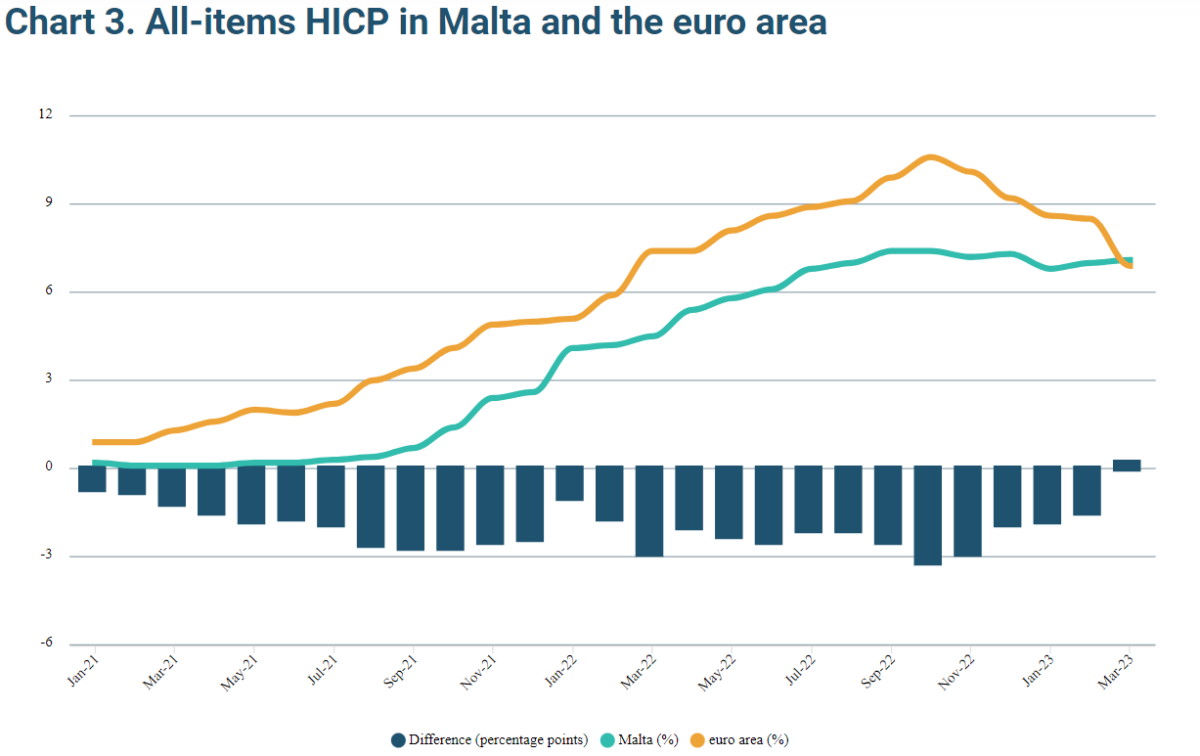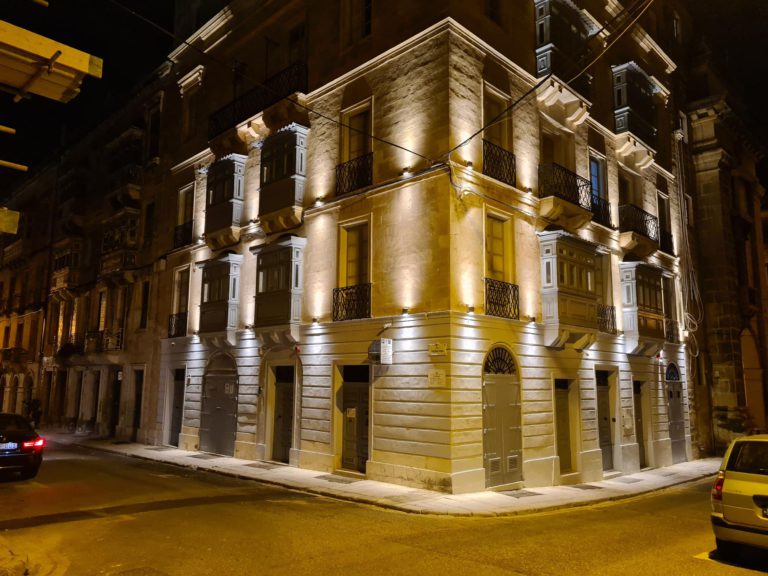Malta’s rate of inflation has increased by another 0.1 per cent from seven per cent to 7.1 per cent in March 2023. The 12-month moving average for inflation stood at 6.8 per cent, up 0.2 from February 2023.
This indicates that persistent upward price pressure is preventing Malta’s rate of inflation from declining and is only 0.3 per cent below its peak in September 2022. This means that Malta’s rate of inflation is above the eurozone average which dropped below seven per cent.

Food and non-alcoholic beverages continue to be the primary drivers of upward annual inflation (12.9 per cent) followed by housing, water, energy and fuels (9.5 per cent)
On a monthly basis, only the cost of transportation declined (0.5 per cent), while the cost of clothing and footwear increased the most (10.8 per cent).
The National Statistics Office noted that the largest upward impact on annual inflation was registered in the food and non-alcoholic beverages index, largely due to higher prices of meat. The second and third largest impacts were measured in the restaurants and hotels index, and the housing, water, electricity, gas and other fuels index, mainly on account of higher prices of restaurant services and house maintenance services, respectively.
The European Central Bank raised interest rates a further 0.5 per cent on 16th March to combat the persistently high rate of inflation.
Self-employed, employees and companies contribute €2.1 billion in 2023
Parliamentary data reveals five-year growth trends in fiscal contributions
MFSA concludes review of Crypto-Asset Service Providers following MiCA implementation
The Authority provided clear expectations and guidance to address certain concerns.
Malta Development Bank to launch schemes supporting sustainable development and creative sector
In 2024, the MDB launched the SME Guarantee Scheme and the Guaranteed Co-Lending Scheme






